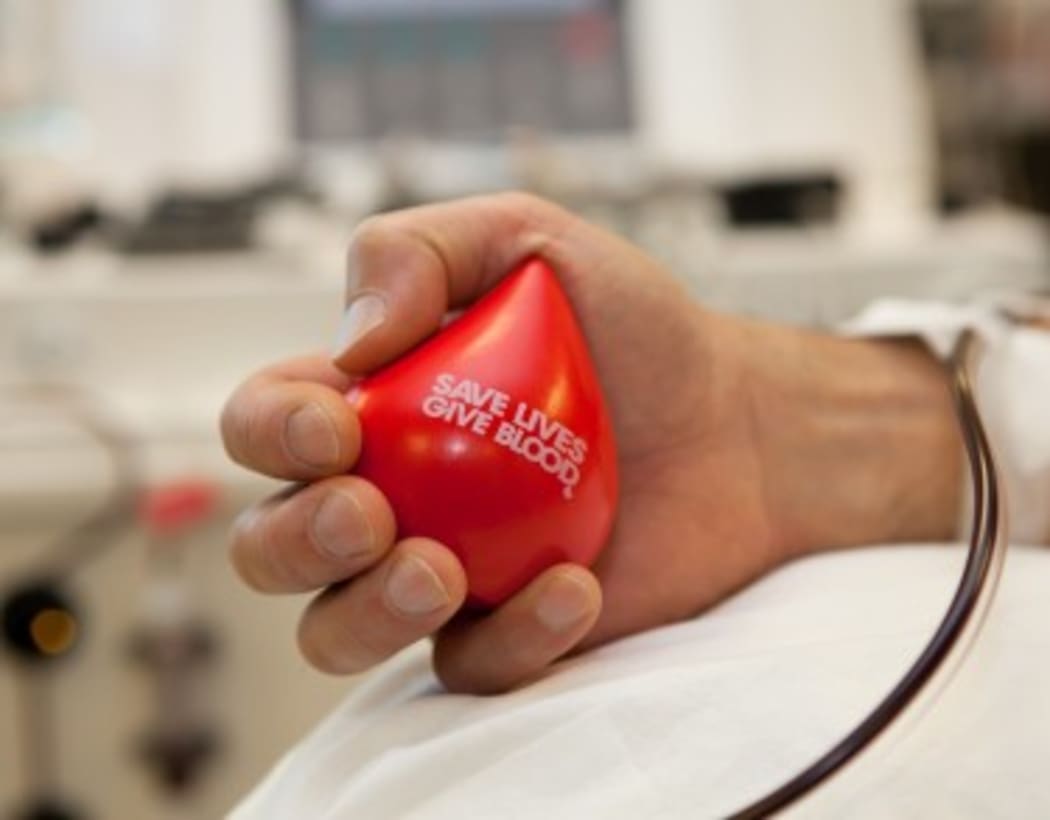The need for blood doesn't stop for the summer holidays and people are being urged to think about taking time away from the beach to donate.

NZ Blood Service Photo: NZ Blood Service
The Blood Service's National Communications Manager Asuka Burge said people tended to forget about donating blood at this time of year.
"The need for blood doesn't go away over summer."
It only takes about an hour to donate and it can be done around the country, she said.
"All of our centres and blood drives are still going other than on the public holidays so we want to make sure all our appointments are filled so we can continue to make sure that blood's supplied."
Between December 2016 and February 2017, 4763 people donated blood.
That was down from 5258 the previous summer.
Ms Burge said the Blood Service was also keen to sign up more Māori and Pacific Island donors who could also join the bone marrow registry.
She said bone marrow matches were strongly linked to ethnicity.
"If you need a bone marrow transplant and you're caucasian/European, you've got access to a database of 12 million plus donors worldwide."
"However, if you are an ethnic minority or Māori or Pacific Islander, that number is significantly smaller, with only around 9000 people on the donor registry," Ms Burge said.
She said the process was not as arduous as people might think, and starts with donors being given a drug a few days before donating to generate more stem cells in their bones.
"Then you come in to a donor centre and it's very similar to giving blood, but just a little longer process, because what you're donating is the stem cells out of your blood so that may take a few hours."
"But pretty much most people who donate bone marrow say they can go back to day-to-day life usually the day after."
Ms Burge said bone marrow donations can be life-saving, used to help people with leukaemia when a lot of other treatment has not been successful.
The Blood Service is also hoping to recruit an extra 2000 donors this year specifically targeting blood plasma.
"There's a machine that the needle goes into and it effectively takes out your blood, spins it in the little machine next to you and returns red cells to you so you're only giving the plasma portion of your blood," Ms Burge said.
"It means the process of lying on the donor bed and donating takes a little bit longer, usually about 40 minutes or so, but the rest of the process from registering, interview and then relaxing at the end with a cuppa and chocolate biscuit all stays the same."
She said once the plasma is collected it is sent to a special facility in Melbourne to be manufactured into medication before coming back to New Zealand for distribution to hospitals and patients.
Ms Burge said there were 13 different products which can be made from plasma, including to help people with immunodeficiencies and medication to fight tetanus.
She said plasma could also be given to expectant mothers with a negative blood type.
"If [their] baby has a positive [blood type] there's a special product, anti-D, which these mothers can receive, to stop their bodies attacking their babies as a foreign body."
She said anyone wishing to give plasma needed to make one regular blood donation first and could ring their local Blood Service centre to arrange that.
There were also other eligibility criteria, including height and weight restrictions.
The Blood Service is also particularly keen to attract younger people and is hoping a new app might be the solution.
Asuka Burge said many people giving blood were in the older age bracket and had been doing so for years, but people can make donations from the age of 16.
She said sometimes people were put off becoming a blood donor because they thought it could be difficult to fit that in along with all their other activities, but she hoped the new app would make the process easier.
"It [will help you] find somewhere to donate and book an appointment."
"[The app] will also send you a message to tell you when your blood has gone on to help save someone else's life, which is really nice, and you can share that on your social media."
She said the Blood Service hoped bringing the next generation on board would mean they develop a lifetime habit of giving blood.

